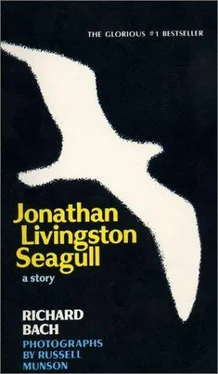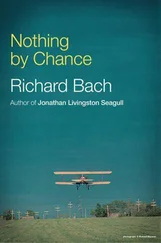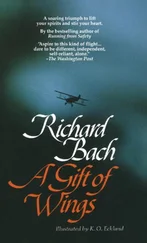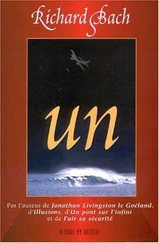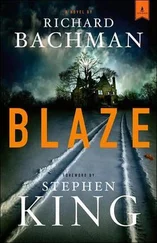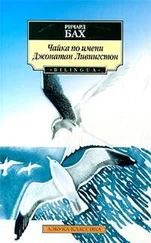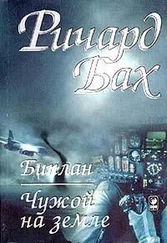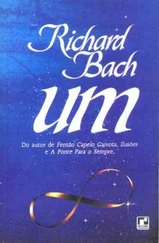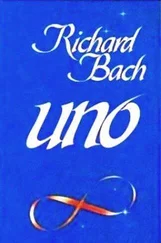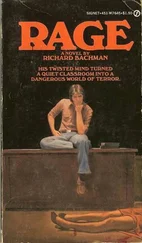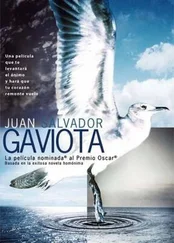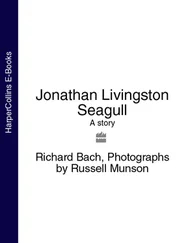Richard Bach
Jonathan Livingston Seagull
To the real Jonathan Seagull, who lives within us all.
It was morning, and the new sun sparkled gold across the ripples of a gentle sea. A mile from shore a fishing boat chummed the water, and the word for Breakfast Flock flashed through the air, till a crowd of a thousand seagulls came to dodge and fight for bits of food. It was another busy day beginning.
But way off alone, out by himself beyond boat and shore, Jonathan Livingston Seagull was practicing. A hundred feet in the sky he lowered his webbed feet, lifted his beak, and strained to hold a painful hard twisting curve through his wings. The curve meant that he would fly slowly, and now he slowed until the wind was a whisper in his face, until the ocean stood still beneath him. He narrowed his eyes in fierce concentration, held his breath, forced one… single… more… inch… of… curve… Then his feathers ruffled, he stalled and fell.
Seagulls, as you know, never falter, never stall. To stall in the air is for them disgrace and it is dishonor.
But Jonathan Livingston Seagull, unashamed, stretching his wings again in that trembling hard curve—slowing, slowing, and stalling once more—was no ordinary bird.
Most gulls don’t bother to learn more than the simplest facts of flight—how to get from shore to food and back again. For most gulls, it is not flying that matters, but eating. For this gull, though, it was not eating that mattered, but flight. More than anything else. Jonathan Livingston Seagull loved to fly.
This kind of thinking, he found, is not the way to make one’s self popular with other birds. Even his parents were dismayed as Jonathan spent whole days alone, making hundreds of low-level glides, experimenting.
He didn’t know why, for instance, but when he flew at altitudes less than half his wingspan above the water, he could stay in the air longer, with less effort. His glides ended not with the usual feet-down splash into the sea, but with a long flat wake as he touched the surface with his feet tightly streamlined against his body. When he began sliding in to feet-up landings on the beach, then pacing the length of his slide in the sand, his parents were very much dismayed indeed.
“Why, Jon, why?” his mother asked. “Why is it so hard to be like the rest of the flock, Jon? Why can’t you leave low flying to the pelicans, the albatross? Why don’t you eat? Son, you’re bone and feathers!”
“I don’t mind being bone and feathers mom. I just want to know what I can do in the air and what I can’t, that’s all. I just want to know.”
“See here Jonathan,” said his father not unkindly. “Winter isn’t far away. Boats will be few and the surface fish will be swimming deep. If you must study, then study food, and how to get it. This flying business is all very well, but you can’t eat a glide, you know. Don’t you forget that the reason you fly is to eat.”
Jonathan nodded obediently. For the next few days he tried to behave like the other gulls; he really tried, screeching and fighting with the flock around the piers and fishing boats, diving on scraps of fish and bread. But he couldn’t make it work.
It’s all so pointless, he thought, deliberately dropping a hard-won anchovy to a hungry old gull chasing him. I could be spending all this time learning to fly. There’s so much to learn!
It wasn’t long before Jonathan Gull was off by himself again, far out at sea, hungry, happy, learning.
The subject was speed, and in a week’s practice he learned more about speed than the fastest gull alive.
From a thousand feet, flapping his wings as hard as he could, he pushed over into a blazing steep dive toward the waves, and learned why seagulls don’t make blazing steep pewer-dives. In just six seconds he was moving seventy miles per hour, the speed at which one’s wing goes unstable on the upstroke.
Time after time it happened. Careful as he was, working at the very peak of his ability, he lost control at high speed.
Climb to a thousand feet. Full power straight ahead first, then push over, flapping, to a vertical dive. Then, every time, his left wing stalled on an upstroke, he’d roll violently left, stall his right wing recovering, and flick like fire into a wild tumbling spin to the right.
He couldn’t be careful enough on that upstroke. Ten times he tried, and all ten times, as he passed through seventy miles per hour, he burst into a churning mass of feathers, out of control, crashing down into the water.
The key, he thought at last, dripping wet, must be to hold the wings still at high speeds—to flap up to fifty and then hold the wings still.
From two thousand feet he tried again, rolling into his dive, beak straight down, wings full out and stable from the moment he passed fifty miles per hour. It took tremendous strength, but it worked. In ten seconds he had blurred through ninety miles per hour. Jonathan had set a world speed record for seagulls!
But victory was short-lived. The instant he began his pullout, the instant he changed the angle of his wings, he snapped into that same terrible uncontrolled disaster, and at ninety miles per hour it hit him like dynamite. Jonathan Seagull exploded in midair and smashed down into a brickhard sea.
When he came to, it was well after dark, and he floated in moonlight on the surface of the ocean. His wings were ragged bars of lead, but the weight of failure was even heavier on his back. He wished, feebly, that the weight could be just enough to drug him gently down to the bottom, and end it all.
As he sank low in the water, a strange hollow voice sounded within him. There’s no way around it. I am a seagull. I am limited by my nature. If I were meant to learn so much about flying, I’d have charts for brains. If I were meant to fly at speed, I’d have a falcon’s short wings, and live on mice instead of fish. My father was right. I must forget this foolishness. I must fly home to the Flock and be content as I am, as a poor limited seagull.
The voice faded, and Jonathan agreed. The place for a seagull at night is on shore, and from this moment forth, he vowed, he would be a normal gull. It would make everyone happier.
He pushed wearily away from the dark water and flew toward the land, grateful for what he had learned about work-saving low-altitude flying.
But no, he thought. I am done with the way I was, I am done with everything I learned. I am a seagull like every other seagull, and I will fly like one. So he climbed painfully to a hundred feet and flapped his wings harder, pressing for shore.
He felt better for his decision to be just another one of the Flock. There would be no ties now to the force that had driven him to learn, there would be no more challenge and no more failure. And it was pretty, just to stop thinking, and fly through the dark, toward the lights above the beach.
Dark! The hollow voice cracked in alarm. Seagulls never fly in the dark!
Jonathan was not alert to listen. It’s pretty, he thought. The moon and the lights twinkling on the water, throwing out little beacon-trails through the night, and all so peaceful and still…
Get down! Seagulls never fly in the dark! If you were meant to fly in the dark, you’d have the eyes of an owl! You’d have charts for brains! You’d have a falcon’s short wings!
There in the night, a hundred feet in the air, Jonathan Livingston Seagull—blinked. His pain, his resolutions, vanished.
Short wings. A falcon’s short wings!
That’s the answer! What a fool I’ve been! All I need is a tiny little wing, all I need is to fold most of my wings and fly on just the tips alone! Short wings!
Читать дальше
